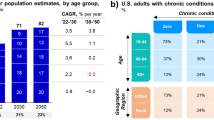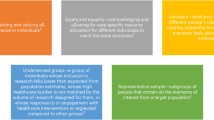Abstract
The World Health Organization estimates the existence of a global shortage of over 4 million health-care workers. Given the growing global burden of cardiovascular disease (CVD), the shortfall in global human resources for health (HRH) is probably even greater than predicted. A critical challenge going forward is to determine how to integrate CVD-related human resource needs into the overall global HRH agenda. We describe the CVD implications of core HRH objectives, including coverage, motivation, and competence, in addition to issues such as health-care worker migration and the need for input from multiple stakeholders to successfully address the current problems. We emphasize gaps in knowledge regarding HRH for global CVD-related care and research opportunities. In light of the current global epidemiologic transition from communicable to noncommunicable diseases, now is the time for the global health community to focus on CVD-related human resource needs.
This is a preview of subscription content, access via your institution
Access options
Subscribe to this journal
Receive 12 print issues and online access
$209.00 per year
only $17.42 per issue
Buy this article
- Purchase on Springer Link
- Instant access to full article PDF
Prices may be subject to local taxes which are calculated during checkout
Similar content being viewed by others
References
Crisp, N. et al. Training the health workforce: scaling up, saving lives. Lancet 371, 689–691 (2008).
World Health Organization. The World Health Report 2006—working together for health [online], (2006).
Joint Learning Initiative. Human resources for health: overcoming the crisis [online], (2004).
Fuster, V. & Kelly, B. B. (eds) Promoting Cardiovascular Health in the Developing World: a Critical Challenge to Achieve Global Health (National Academies Press, Washington DC, 2010).
Lehmann, U., Van Damme, W., Barten, F. & Sanders, D. Task shifting: the answer to the human resources crisis in Africa? Hum. Resour. Health 7, 49 (2009).
Bone, L. R. et al. Emergency department detection and follow-up of high blood pressure: use and effectiveness of community health workers. Am. J. Emerg. Med. 7, 16–20 (1989).
Brownstein, J. N. et al. Community health workers as interventionists in the prevention and control of heart disease and stroke. Am. J. Prev. Med. 29 (5 Suppl. 1), 128–133 (2005).
Gary, T. L. et al. The effects of a nurse case manager and a community health worker team on diabetic control, emergency department visits, and hospitalizations among urban African Americans with type 2 diabetes mellitus: a randomized controlled trial. Arch. Intern. Med. 169, 1788–1794 (2009).
Huicho, L. et al. How much does quality of child care vary between health workers with differing durations of training? An observational multicountry study. Lancet 372, 910–916 (2008).
Mullan, F. & Frehywot, S. Non-physician clinicians in 47 sub-Saharan African countries. Lancet 370, 2158–2163 (2007).
Mendis, S. et al. Cardiovascular risk management and its impact on hypertension control in primary care in low-resource settings: a cluster-randomized trial. Bull. World Health Organ. 88, 412–419 (2010).
Janssens, B. et al. Offering integrated care for HIV/AIDS, diabetes and hypertension within chronic disease clinics in Cambodia. Bull. World Health Organ. 85, 880–885 (2007).
Langenbrunner, J., Orosz, E., Kutzin, J. & Wiley, W. in Purchasing to Improve Health Systems Performance (eds Figueras, J., Robinson, R. & Jakubowski, E.) 236–264 (World Health Organization, New York, 2005).
Hagopian, A., Zuyderduin, A., Kyobutungi, N. & Yumkella, F. Job satisfaction and morale in the Ugandan health workforce. Health Aff. (Millwood) 28, w863–w875 (2009).
Ferrinho, P. & Van Lerberghe, W. (eds) Providing Health Care Under Adverse Conditions: Health Personnel Performance & Individual Coping Strategies (ITGPress, Antwerp, 2000).
McPake, B. et al. Informal economic activities of public health workers in Uganda: implications for quality and accessibility of care. Soc. Sci. Med. 49, 849–865 (1999).
Kipp, W., Kamugisha, J., Jacobs, P., Burnham, G. & Rubaale, T. User fees, health staff incentives, and service utilization in Kabarole District, Uganda. Bull. World Health Organ. 79, 1032–1037 (2001).
Soeters, R. & Griffiths, F. Improving government health services through contract management: a case from Cambodia. Health Policy Plan. 18, 74–83 (2003).
Kingma, M. Economic incentive in community nursing: attraction, rejection or indifference? Hum. Resour. Health 1, 2 (2003).
Mathauer, I. & Imhoff, I. Health worker motivation in Africa: the role of non-financial incentives and human resource management tools. Hum. Resour. Health 4, 24 (2006).
World Health Organization. Prevention of cardiovascular disease: guidelines for assessment and management of cardiovascular risk [online], (2007).
Ensor, T. & Weinzierl, S. Regulating health care in low- and middle-income countries: broadening the policy response in resource constrained environments. Soc. Sci. Med. 65, 355–366 (2007).
Mensah, K., Mackintosh, M. & Henry, L. The 'skills drain' of health professionals from the developing world: a framework for policy formulation [online], (2005).
O'Brien, P. & Gostin, L. O. Health worker shortages and inequalities: The reform of United States policy. Global Health Governance 2, 1–29 (2008).
World Health Organization. Increasing access to health workers in remote and rural areas through improved retention [online], (2009).
Sixty-third World Health Assembly. WHO global code of practice on the international recruitment of health personnel [online], (2010).
World Health Organization. Global Health Workforce Alliance [online], (2009).
Global Health Workforce Alliance. Moving Forward from Kampala: Strategic Priorities and Directions, 2009 to 2011 (World Health Organization, Geneva, 2009).
Einterz, R. M. et al. Responding to the HIV pandemic: the power of an academic medical partnership. Acad. Med. 82, 812–818 (2007).
US Department of Health and Human Services. National Heart, Lung, and Blood Institute Global Health Initiative [online], (2009).
Author information
Authors and Affiliations
Contributions
R. Vedanthan drafted the manuscript. Both R. Vedanthan and V. Fuster contributed to discussion of content for the article, researched data to include in the manuscript, reviewed and edited the manuscript before submission, and revised the manuscript in response to the peer-reviewers' comments.
Corresponding author
Ethics declarations
Competing interests
The authors declare no competing financial interests.
Rights and permissions
About this article
Cite this article
Vedanthan, R., Fuster, V. Urgent need for human resources to promote global cardiovascular health. Nat Rev Cardiol 8, 114–117 (2011). https://doi.org/10.1038/nrcardio.2010.178
Published:
Issue Date:
DOI: https://doi.org/10.1038/nrcardio.2010.178
This article is cited by
-
Elevated plasma succinate levels are linked to higher cardiovascular disease risk factors in young adults
Cardiovascular Diabetology (2021)
-
Hypertension management in rural western Kenya: a needs-based health workforce estimation model
Human Resources for Health (2019)
-
A zero power harmonic transponder sensor for ubiquitous wireless μL liquid-volume monitoring
Scientific Reports (2016)



